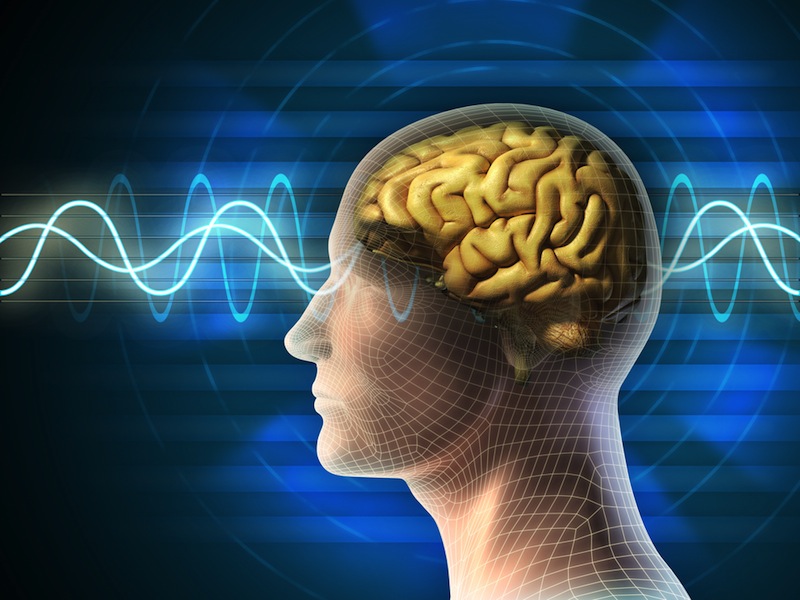Top Brain Science Movies Revealed

Movies that showcase brain science often take a little artistic license in terms of their scientific accuracy — think "Being John Malkovich" or "The Matrix" — but even brain scientists say that these fanciful plots can make for good movies.
And there's now a ranking of the top brain science movies of all time, thanks to a database complied by cognitive science researchers who are also movie buffs, of sorts.
The database, called the Cognitive Science Movie Index, is an aggregation of movies that feature themes of cognitive science, broadly defined as "the interdisciplinary study of the mind."
Visitors to the website can rank movies based on their quality ("how good is the film?"), accuracy ("how accurately does the film portray a theme in cognitive science?") and relevance ("how 'cognitive sciencey' is the film?"). [Top 10 Scariest Movies Ever]
After eight years of collecting data — with 2,800 voters giving 10,000 ratings — the researchers published their top 10 lists in the October issue of the journal Trends in Cognitive Sciences.
The top movies for quality were: "Solaris" (1972), "Blade Runner" (1982) and "A Clockwork Orange" (1971).
The top movies for accurately depicting brain science were: "Fast, Cheap, and Out of Control" (1997), "Awakenings" (1990) and "One Flew Over the Cuckoo's Nest" (1975).
Sign up for the Live Science daily newsletter now
Get the world’s most fascinating discoveries delivered straight to your inbox.
The top movies for relevance were: "Das Experiment" (2001), "Memento" (2000) and "Moon" (2009).
Ben Motz, senior lecturer and director of pedagogy at Indiana University's Department of Psychological and Brain Sciences, started the index with his colleagues when he was a graduate student at the University of California, San Diego.
Although the index began as "a silly graduate student project," Motz said he later realized the list had value as a learning tool, as well as a reference for cognitive scientists and students to help with outreach in the field.
In a class he now teaches, Motz assigns students to watch a movie from the list and write a paper on the scientific accuracy of the movie. For example, a student might analyze how well "50 First Dates" portrays anterograde amnesia.
"[It's] chance for them to learn something," Motz told LiveScience.
Anyone can rank movies, although Motz said he suspects that many of the voters so far have been academics. (Anyone can also suggest a movie for inclusion in the index.)
Many movies appear on two or three of the top 10 lists. "Indeed, films with high marks for accuracy and relevance are, without exception, also given high marks for quality," Motz said. For example, the 2009 flick "Moon" starring Kevin Spacey appears at No. 5 on the quality list, No. 9 on the accuracy list and No. 3 on the relevance list.
However, Motz noticed that low accuracy does not always take away from quality. Movies such as "Tron," "Being John Malkovich," "Young Frankenstein" and "The Manchurian Candidate" score low on accuracy, but score high on quality.
"I don't think that somebody who's making a movie should feel that they need to appease cognitive scientists to make a good movie," Motz said. "You are enchanting the audience, enchanting society … with the possibility of what it would be like if cognitive scientists achieved some of the research goals that we have."
And in a very indirect way, movies may help spur advances in the field by getting people interested in science.
"It's my guess that a remarkably large number [of scientists] became interested in the field as a result of reading a book or seeing a movie," Motz said.
Brain science movies contribute to a culture of intrigue in society, "And that culture of intrigue is the place where scientific interest and innovation come from," he said.
Lists that are similar to the Cognitive Science Movie Index include Artificial Intelligence in Cinema and Psychopathology in Hollywood.
Follow Rachael Rettner @RachaelRettner. Follow LiveScience @livescience, Facebook & Google+. Original article on LiveScience.

Rachael is a Live Science contributor, and was a former channel editor and senior writer for Live Science between 2010 and 2022. She has a master's degree in journalism from New York University's Science, Health and Environmental Reporting Program. She also holds a B.S. in molecular biology and an M.S. in biology from the University of California, San Diego. Her work has appeared in Scienceline, The Washington Post and Scientific American.










